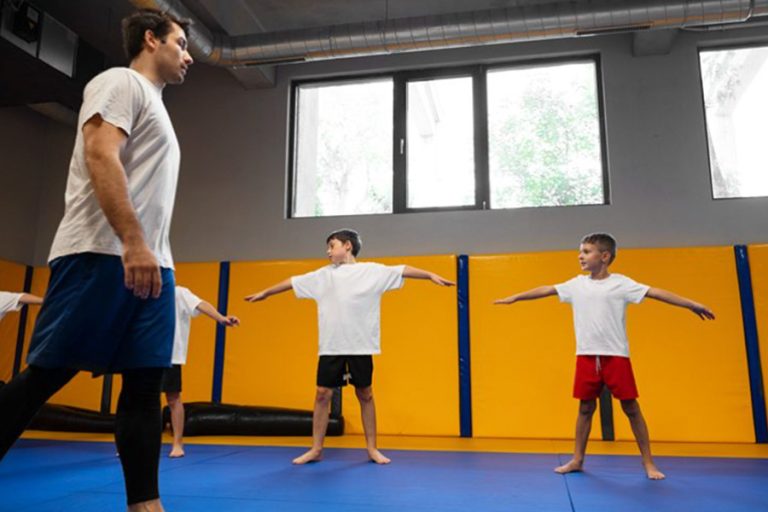
Image Source: lifenextlevel.com
Our psychological framework shapes how we interpret the world around us. This collection of attitudes and beliefs functions as a powerful lens through which we view every situation.
According to research, these core beliefs directly influence how individuals think, feel, and behave. Stanford psychologist Carol Dweck’s studies demonstrate that what people believe about themselves plays a pivotal role in their achievements.
This perspective encompasses more than just attitudes. It includes inclinations, psychological habits, and thought processes that collectively impact outcomes. Understanding one’s current mindset is the essential first step toward personal growth.
The way people approach challenges and opportunities is deeply connected to their underlying beliefs. These psychological patterns influence motivation, self-regulation, and interpersonal relationships across all aspects of life.
Key Takeaways
- A person’s psychological framework consists of beliefs and attitudes that shape their perception
- Core beliefs directly influence thoughts, feelings, and behaviours in any situation
- Research demonstrates that beliefs play a critical role in determining success
- This perspective includes attitudes, inclinations, and psychological habits
- Understanding one’s current mindset is essential for personal development
- Psychological patterns impact motivation and achievement throughout life
Embracing the Duality: Fixed vs Growth Mindset
Stanford research reveals two fundamental belief systems that determine how people approach challenges and opportunities. These contrasting perspectives shape behaviour across academic, professional, and personal domains.
Defining the Fixed Mindset
Individuals with a fixed mindset believe their intelligence and abilities are static traits. They view talent as innate rather than developable. This perspective leads people to avoid challenges where failure might reveal limitations.
Those holding fixed beliefs often give up easily when facing obstacles. They see effort as pointless if natural talent is lacking. Criticism feels threatening rather than helpful. Others’ success becomes a source of insecurity.
Exploring the Growth Mindset
Conversely, the growth mindset embraces the idea that abilities can develop through dedication. People with this outlook see challenges as opportunities to learn and improve.
They persist through setbacks, viewing effort as the path to mastery. Constructive feedback becomes valuable information for growth. Others’ achievements serve as inspiration rather than threats.
Impact on Personal Success
Research shows these belief systems significantly influence achievement. The growth perspective fosters resilience and continuous improvement. It transforms how people approach learning and development throughout life.
Childhood experiences shape these orientations. Praise focused on effort cultivates growth characteristics, while talent-based praise often reinforces fixed beliefs about abilities.
Developing a Growth Mindset Through Effort and Reflection
Practical development of psychological flexibility hinges on specific, actionable techniques. Individuals can actively cultivate a more dynamic outlook by focusing on the process of learning.
Harnessing Effort and Learning
Sustained effort is the cornerstone of capability development. Rather than fixating on final results, celebrating small improvements reinforces that ability grows over time.
A powerful linguistic shift involves adding the word “yet.” Telling oneself, “I haven’t mastered this yet,” transforms struggles into temporary challenges. This simple change frames the learning process positively.
It is also vital to monitor internal dialogue. Replacing thoughts like “I can’t do this” with “What are different ways I can approach this problem?” redirects the mind towards solutions.
Turning Setbacks into Opportunities
Setbacks and mistakes are not signs of failure but invaluable learning opportunities. Each challenge presents a chance to develop new strategies and resilience.
Viewing difficult experiences as puzzles to be solved, rather than judgements on one’s worth, is crucial. This reframing allows individuals to engage deeply with material and persist through confusion.
Changing one’s core beliefs is a gradual process. It requires consistent attention to thoughts and patience. Embracing challenges, rather than avoiding them, is one of the best ways to foster genuine growth.
Mindset Strategies for Success
The journey towards achievement begins with recognising thought patterns in real-time. Individuals can implement practical techniques immediately in their daily lives.
Mental training involves adapting the mind through consistent practice. The foundation for this process starts with one’s core beliefs about capability.
Real-world Tips by Susan Lynch Coach
When facing challenges, pause to identify fixed thinking. Ask “What can I learn here?” rather than “Can I do this?” This simple shift transforms obstacles into growth opportunities.
Take responsibility for experiences by focusing on controllable factors. External circumstances matter less than personal responses. This approach builds resilience over time.
In-depth Analysis of Thought Processes
Monitor internal dialogue during decision-making moments. The ways people approach choices reveal their underlying beliefs. For example, avoiding difficult tasks often signals fixed thinking.
Successful individuals view setbacks as data points rather than failures. They analyse what went wrong and adjust their efforts accordingly. This analytical approach supports continuous improvement.
Consistent practice rewires habitual responses. Small daily activity creates significant long-term change. Surrounding oneself with growth-oriented people reinforces positive patterns.
These strategies form part of a broader approach to personal development. For those seeking comprehensive guidance, exploring life-changing steps in creating a mindset for provides additional valuable content.
Professionals’ Perspectives on Mental Training
Mental training specialists contribute essential knowledge about the cognitive processes behind success. Their insights bridge academic research with practical application.
Insights from Susan Lynch
Carol Dweck’s pioneering work in psychology reveals how self-conceptions guide behaviour. Her research shows distinct brain activity patterns during learning challenges.
Growth-oriented individuals show increased engagement with problems. Fixed perspective people often avoid difficult mental activity.
| Aspect | Fixed Perspective | Growth Perspective |
|---|---|---|
| Brain Activity on Errors | Minimal engagement | High processing activity |
| Response to Challenges | Avoidance behaviour | Deep engagement |
| Learning Approach | Seeks validation | Seeks understanding |
Expert Commentary featuring Susan Lynch Coach
Dweck writes about the “power of yet” concept in her influential book. This approach transforms how people view their current abilities.
Her TED talk demonstrates how language shapes psychological development. Simple changes in self-talk create significant impact on life outcomes.
Inspiring Advice from Susan Lynch
Research confirms that deliberate practice reshapes thought patterns. Studies show neurological changes occur with consistent mental training.
This work benefits both personal health and professional achievement. The author’s findings help others develop more adaptive approaches to life’s challenges.
Conclusion
The cultivation of a productive psychological framework represents one of life’s most valuable investments. Research confirms that this foundational mindset directly shapes how people approach challenges and ultimately determines their success.
While individuals may naturally lean toward fixed or growth orientations, these patterns are not permanent. Through conscious effort and reflection over time, anyone can develop a more adaptive approach. The learning process itself becomes the focus rather than fearing failure.
True achievement depends less on innate abilities and more on the perspective brought to daily experiences. Small, consistent changes in thinking create significant transformation. This practical content demonstrates that developing a growth mindset is an ongoing journey of self-improvement.
Embracing challenges as opportunities fuels continuous development. This approach leads to greater satisfaction and accomplishment across all life domains, proving that psychological flexibility remains key to lasting success.
FAQ
What is the main difference between a fixed and a growth mindset?
The core difference lies in how individuals perceive their abilities. Someone with a fixed mindset believes their talents and intelligence are static. In contrast, a person with a growth mindset sees these traits as qualities that can be developed through dedication and hard work.
How can a person change their mindset?
Shifting one’s perspective involves conscious effort and reflection. It starts with recognising one’s own thought patterns. People can then actively challenge limiting beliefs, embrace challenges as learning opportunities, and value the process of learning over immediate, perfect results.
What role does effort play in a growth mindset?
Effort is fundamental. In this framework, hard work is not seen as a sign of weakness but as the essential path to mastery. It is the mechanism through which abilities are stretched and intelligence is cultivated, turning setbacks into valuable stepping stones.
Can adopting a growth mindset improve professional success?
Absolutely. This approach directly impacts professional life. Individuals are more likely to persevere through difficulties, seek out feedback, and view colleagues’ success as inspirational. These characteristics often lead to greater achievement and career advancement.
What is a common misconception about the growth mindset?
A frequent misunderstanding is that it simply means being positive or open-minded. In reality, it is a deeper psychological stance that involves a commitment to learning and resilience. It requires acknowledging weaknesses and strategically working to improve them, not just believing improvement is possible.
How do experts like Susan Lynch recommend applying these concepts daily?
Professionals such as Susan Lynch emphasise practical strategies. These include reframing self-talk from “I can’t do this” to “I can’t do this *yet*,” and analysing mistakes to extract lessons. Small, consistent shifts in how one approaches problems can cultivate a powerful growth-oriented psychology over time.








